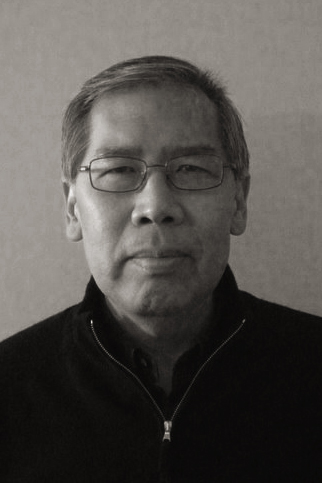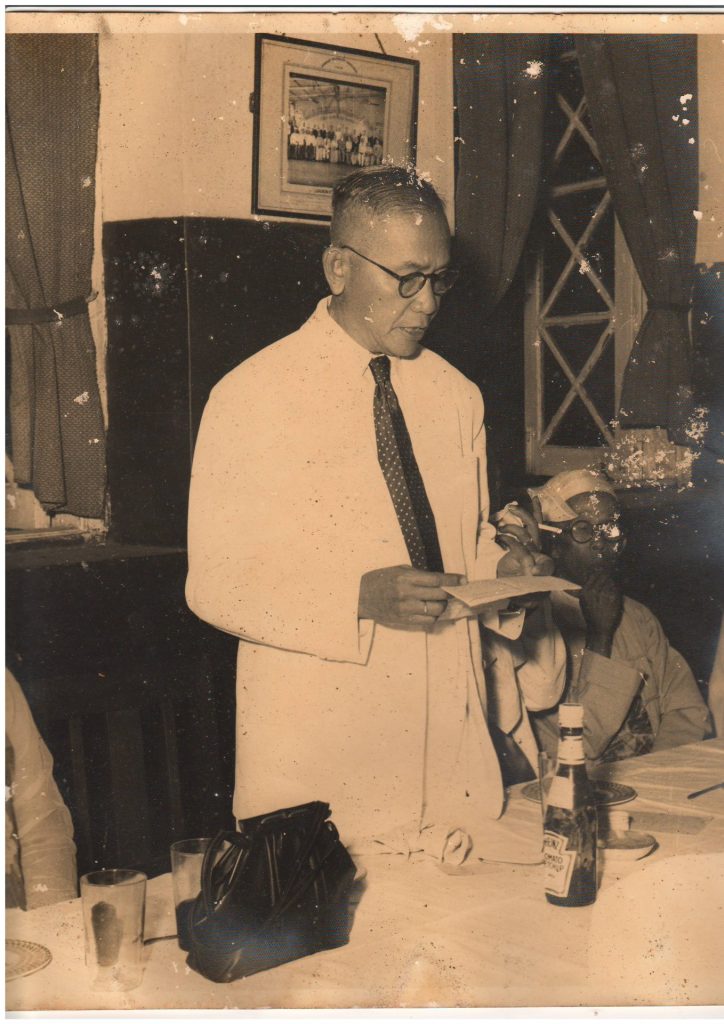Li, Victor
VISITOR’S VOICE
Interview with Victor Li »

From Theoretical Concepts to Personal History
01
Please tell us about your research.
My research interests have mainly been in literary theory, postcolonial and globalization studies, and continental philosophy. These interests have resulted in publications on the strategic enframing of space and time in theories of globalization, the theme of death in subaltern studies, and the critical impact of thinkers like Jacques Derrida, Edward Said, and Giorgio Agamben on contemporary debates in ethics, politics, and aesthetics. My major research project, which culminated in my book The Neo-Primitivist Turn: Critical Reflections on Alterity, Culture, and Modernity (2006), examined how the contentious concept of “the primitive” was never completely banished, reappearing, as it has done in contemporary discourses, in unexpected ways and in new theoretical guises. An idealized conception of “the primitive” continues to function as the ultimate sign of otherness. Focusing on the works of theorists like Jean Baudrillard, Jean-Francois Lyotard, Marianna Torgovnick, Marshall Sahlins, and Jurgen Habermas, I argued that primitivism remains a powerful presence even in those works normally regarded as critical of the concept. The book also demonstrated the relevance of this neo-primitivist “turn” in contemporary debates on the politics and ethics of otherness, the problems of cultural relativism, and the vicissitudes of modernity.
While I still maintain an academic interest in literary and philosophical theory, my recent retirement from teaching at the University of Toronto has prompted me to start a new research venture, one that would take me from the theoretical to the personal and biographical. I discovered in an entry in Southeast Asian Personalities of Chinese Descent: A Biographical Dictionary (edited by Leo Suryadinata) that my grandfather Li Boon Tin played a prominent role in the social and political history of the Chinese community in Rangoon, Burma. He is reported to have helped smuggled General Aung San (the father of Aung San Suu Kyi and the leader of the Burmese independence movement against British colonial rule) out of Rangoon in order to escape arrest by the British colonial authorities. The details of Aung San’s escape, and Li’s role in enabling it, are, however, rather shrouded in mystery. I want to look further into this chapter of Li’s life and his subsequent leadership role in Rangoon’s Chinese community after the Second World War. As a child, I knew Li only as a gentle and indulgent grandfather. Today, however, I want to know more about the role he played in the political, social, and economic life of the Chinese community in Rangoon during the war years and after.

02
How many research themes do you have?
I currently have 2 research themes: (1) In my academic research, I’m trying to understand the relationship of death to the process of idealization in literature and philosophy. I want to find out the ways in which the death or disappearance of an object, a person, a culture, a life-form, or any material presence presents an opportunity to turn this death or disappearance into a pure ideal. “Necroidealism” is the name I’ve given to this process in which the death of a living or material presence ensures the problematic perfection of an idea or concept so pure that no living or material referent could refute or disturb it. (2) My other theme is the personal/biographical research I’m pursuing in order to understand the leadership role played by my grandfather in Rangoon’s Chinese community during the middle decades of the 20th century.
03
Why do you find your research topic interesting?
I’m interested in my academic research on “necroidealism” because it touches on a deep human need to turn death and disappearance into something that can not only be memorialized but also monumentalized. While this need is understandable, there is also something disturbing about the underlying sacrificial and martyrlogical logic present in such necroidealist projects.
I find my second research theme interesting not only for personal reasons but also for its historical dimension. In seeking to understand better my grandfather’s life, I will also be learning more about the social, political, and economic history of Rangoon’s Chinese community during the turbulent war years and the early decades of Burmese independence.
04
How did you get started in your research and how did you come to focus on your current research?
My research on “necroidealism” is an expansion and further development of the ideas expressed in an article I published a number of years ago: “Necroidealism, or the Subaltern’s Sacrificial Death,” Interventions 11:3 (2009) 275-292.
I first became interested in my grandfather’s role in Rangoon’s Chinese community when I heard from my late aunt the account of how he helped General Aung San escape from the British colonial authorities. I then came across the entry on Li Boon Tin in Southeast Asian Personalities of Chinese Descent which also recounted this episode and briefly described his many other leadership roles. This further increased my curiosity to know more about someone who I remembered only as a kindly grandfather.
05
Have you had any difficulties in putting together the results of your research into a research paper or book?
I’ve had no difficulties in publishing my research findings in academic journals or books in my field of studies. I’m less certain, however, about publishing my research on my grandfather’s life, especially since I’ve never attempted to write in the personal/biographical genre. I’m also not sure that my personal interest in the project will be of interest to others. I hope, however, that my research findings may be of some use to specialists in the field of South East Asian social, political, and economic history and ethnic studies.
06
Can you share with us an episode about any influential people, things, and places you have encountered whilst doing your research?
I’ve had the pleasure of attending lectures by such influential thinkers as Raymond Williams, Edward Said, Gayatri Spivak, Fredric Jameson, and Jacques Derrida. But I have not had any personal encounters with them. Moreover, personal encounters may not always end well. I was once seated next to the Canadian author Margaret Atwood at lunch. We had a long pleasant conversation. At a certain point, our discussion turned to the question “Who is a Canadian writer?” I ventured the opinion that a foreign expatriate writer who has resided for a length of time in Canada could be considered a Canadian writer. This clearly offended Atwood who has strong nationalist views of Canadian culture. Suddenly, she turned away from me and started talking to the person on the other side of her. This was an encounter in which I should have been more circumspect in offering my view.
07
Which books or people have influenced you?
When I was a graduate student at Cambridge University, my area of doctoral research was in Anglo-American modernist poetry. In 1978, Edward Said published his seminal book Orientalism. It had such an impact on my thinking that I switched my research interest from Western literary modernism to postcolonial studies. I’ve also been influenced by poststructuralist thinkers like Jacques Derrida and Jean-Luc Nancy, by Michel Foucault’s and Giorgio Agamben’s work on power and subject formation, and by the profoundly stimulating writings of Walter Benjamin.
08
What is your ideal image of a researcher?
The ideal researcher is someone who will be counter-intuitive, always seeking to think otherwise, to challenge the established by going against the grain. Kenneth Burke’s remark captures this attitude well: “When in Rome, do as the Greeks.” The ideal researcher must also be both critical and hopeful, always keeping in mind the slogan that was made popular during the May 68 events in Paris: “Be realistic, demand the impossible!”
09
Do you have any must-have gear for field research and writing?
As a humanities researcher, all the resources I need are to be found in libraries or special collections archives. Many of these resources are available on-line today. So the one important piece of equipment I need is my laptop and, of course, easy access to the internet and wi-fi. However, there is a need sometimes for low-tech equipment such as pencil and paper. Some libraries with special collections of rare manuscripts (like King’s College Library in Cambridge or Oxford’s Bodleian Library) will only allow researchers access to these materials on condition that they take notes with pencil and paper (in order to prevent ink defacement of these manuscripts or their electronic reproduction without permission).
10
Do you have any essential reads (books) that you can recommend to younger people?
I think all young scholars in the humanities and social sciences should have some acquaintance with the writings of Marx and Freud. In postcolonial studies, essential reading for young scholars should include Edward Said’s Orientalism and Culture and Imperialism, Frantz Fanon’s The Wretched of the Earth, Gayatri Spivak’s classic essay “Can the Subaltern Speak?”, and Dipesh Chakrabarty’s Provincializing Europe.
I would also like to receive recommendations from other scholars, young or old, of books I should read. Before coming to Kyoto, I was recommended 2 books on Japanese culture and thought: Naoki Sakai’s Translation and Subjectivity: On “Japan” and Cultural Nationalism and Marilyn Ivy’s Discourses of the Vanishing: Modernity, Phantasm, Japan. I would be very pleased to receive further recommendations from colleagues at CSEAS of books to read on Japanese culture and society, philosophy, politics, and aesthetics.
11
Do you have any advice for those who aim to become researchers?
My advice, for what it’s worth, is that you must always maintain a sense of excitement and pleasure in pursuing your research project. You must also never be afraid to follow any interesting idea even if it appears to end up nowhere because the “nowhere,” however disappointing it may seem from a goal-oriented point of view, can constructively re-direct you “elsewhere” by opening up other directions and possibilities. In short, dead-ends can sometimes open out to new and more exciting beginnings.
12
What are your future ambitions as a scholar?
After nearly four decades in the academy, I think I’ve met most of my scholarly ambitions. In the years remaining, I want to explore, without the pressures of academic audit and writing deadlines, issues of continuing interest and relevance to me, such as the two research themes I’ve described above.
References
Fanon, F. 2005. The Wretched of the Earth, translated by Richard Philcox. New York: Grove Press.
Li, V. 2009. ”Necroidealism, or the Subaltern’s Sacrificial Death.” Interventions 11(3): 275-292.
Said, E. W. 1979. Orientalism. New York: Vintage.
Said, E. W. 1994. Culture and Imperialism. New York: Vintage.
(February 2023)
Victor Li is a Visiting Research Scholar of CSEAS
from February – July 2023